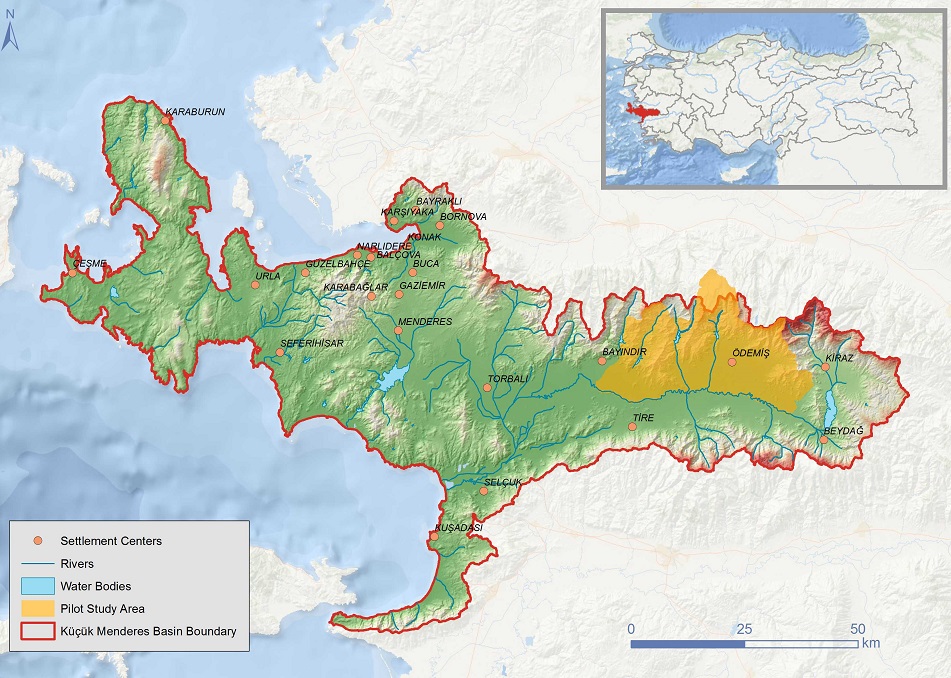Nature Conservation Center (DKM) in partnership with the General Directorate of Forestry has completed the project “Integration of Hydrological Functions into Forest Management Planning”. The project aimed to improve the technical capacity for the integration of hydrological functions of forests into forest management plans and to implement the developed methodology in a pilot study. A technical guide entitled “Integration of Hydrological Functions into Forest Management Plans” was also created. The project was funded by the Coca Cola Foundation and the Small Grants Programme of the Global Environment Facility (GEF SGP) implemented by the United Nations Development Programme.
The watersheds of three dams in Izmir, Turkey were studied regarding their hydrologic functions considering forest ecosystem’s services in soil conservation and water production. The integration of hydrological functions into forest management plans was achieved for the renewed plans of Ödemiş, Alaçam and Çamyayla Forest Management Units.
DKM’s Head of Board, Dr. Uğur Zeydanlı, stated that “Forests are the fundamental ecosystems which regulate water quality and quantity. The increase of human population and impacts of climate change have shown the significance of protecting forests for water supply, in addition to other services and benefits they are providing to humans for wellbeing, and managing the water demand effectively. Planning and managing forests in the dams’ watersheds in accordance with their hydrological functions maximises water quality and quantity as well as soil conservation”.
The technical guide mentioned above includes the outputs of national and international research that contribute to the planning and efficient management of forests regarding their hydrologic functions. It represents the technical details about the planning processes and modelling phases applied in the pilot site, thus the efficient integration can be applied to other watersheds. The last part of the guide presents the benefits of forests concerning hydrological functions and gives suggestions about their planning and management phases.
To download the guide (only in Turkish) please click here.

